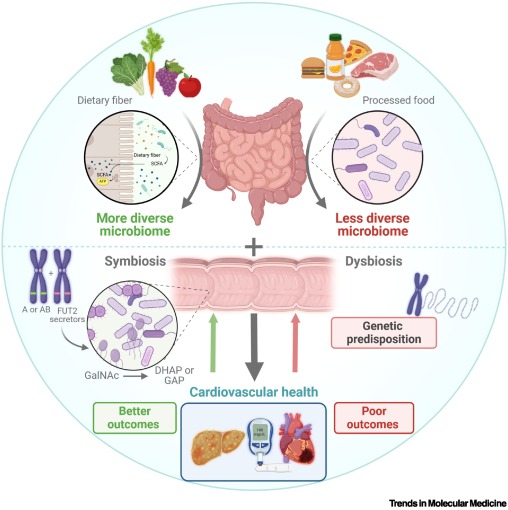This study delves into the dynamic interactions between the host’s genetics and the gut microbiome, focusing on how structural variations (SVs) in the microbial genome can be influenced by genetic factors and environmental conditions. These interactions have significant implications for human health, potentially offering novel therapeutic avenues through the strategic modulation of the microbiome.
Methods:
The study incorporates a review of recent data from various sources, including twin, family, and population studies, to elucidate the influence of host genetics on the gut microbiome’s capacity for SVs. It further examines the interplay between dietary influences, microbial adaptation via SVs, and health outcomes, integrating findings from meta-analyses that link genetic variations to specific microbial profiles. The research method also includes in vitro experiments and in silico analyses to validate the functional capabilities of microbes under genetically influenced conditions.
Key Findings:
- Host genetics, particularly at the ABO and FUT2 loci, significantly influence the gut microbiome’s structure and functional capacity, including its ability to adapt rapidly to dietary changes through SVs.
- Dietary components such as GalNAc are selectively utilized by certain bacteria like Faecalibacterium prausnitzii in individuals with specific blood types, facilitated by SVs in microbial genomes.
- The study highlights the potential of using SV-inducing prebiotics for therapeutic benefits, especially in individuals with specific genetic backgrounds that affect microbiome composition and functionality.
- A diverse gut microbiome enriched with SVs can better metabolize various dietary components, thereby contributing to better health outcomes and lower disease risk.
- Findings suggest the feasibility of personalized microbiome-based therapies that consider individual genetic makeup, lifestyle, and dietary habits to optimize health outcomes.
These insights emphasize the potential of integrating genetic, microbiomic, and environmental data to develop targeted interventions that leverage the adaptive capabilities of the gut microbiome, enhancing health and disease management.
Link to the study : https://tinyurl.com/bdf5b4cs
